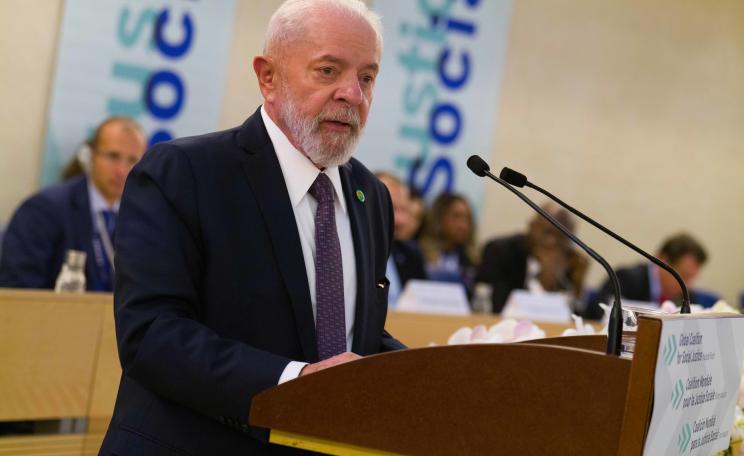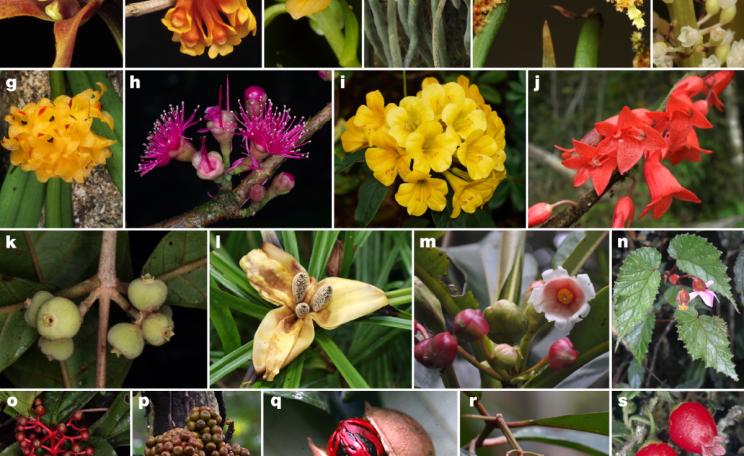Indigenous peoples have been protecting these forests for millennia.
Protection of the Amazon must remain high on the agenda as there are now only seven weeks until COP30 in Belém, Brazil.
Scientists warn that if deforestation exceeds more than 20 per cent of the Amazon’s total area, large portions could shift permanently into dry savannah. As of now, estimates suggest around 17 per cent has already been lost.
Global attention is turning towards environmental protection and climate action, but recent developments in Brazil nonetheless raise concerns.
Stewardship
Discussions around expanding oil exploration and the passage of the Devastation Bill, which could open new parts of the Amazon to deforestation, signify the urgent need for renewed focus.
While reforestation efforts form a crucial part of rainforest protection strategies, alone, they are not enough. So how do we best achieve long-term protection and restoration of the Amazon, alongside supporting the people who have called it home for generations?
The data is clear – keeping Indigenous peoples on their land is the most effective way of protecting the forest.
Indigenous-protected areas in the Brazilian Amazon experience up to 83 per cent less deforestation than unprotected areas. Studies from Colombia, Ecuador, Peru and Bolivia tell a similar story: Indigenous-managed areas consistently outperform other conservation models.
By protecting the rainforests, we preserve one of our most important global climate sinks. Between 2013 and 2022, Indigenous territories alone absorbed 257 million metric tons of carbon, equivalent to the annual emissions of more than 55 million cars.
Health
However, currently, only 45 per cent of the remaining intact Amazonian forests are in Indigenous territories. This presents a clear opportunity to advance rainforest protection by increasing Indigenous management of land, but it also raises the question – are land rights enough?.
Indigenous communities need support that goes beyond land rights, focused on sustainable, long-term initiatives helping them not only remain on their land, but live resilient, productive lives within thriving ecosystems.
To be effective stewards of the rainforest, Indigenous communities need access to essential services, including healthcare, clean water, and sustainable food and income. This is where global philanthropy has an important role to play.
Indigenous peoples have been protecting these forests for millennia.
As part of its long-term conservation efforts in the Amazon, The Caring Family Foundation has partnered with Associação Médicos Da Floresta (AMDAF) to launch a medical bus that provides specialist healthcare to Indigenous Amazonian communities, including gynaecology, paediatrics, cardiology and ophthalmology diagnosis and treatment.
Since the start of the year, the mobile health unit has offered lifesaving care and medical support to 38,000 Indigenous people living deep within the forest who protect 1.7 million hectares of the Amazon.
Equipped
In March 2025, it became clear just how desperately needed specialist health care is in these regions. The Nukini community contracted respiratory and gastrointestinal infections – if left untreated, this could have threatened the lives of the entire community. Thankfully, with access to treatment, not a single person lost their life.
By showing up reliably, delivering culturally sensitive care, and co-creating services with community guidance, the programme strengthens Indigenous resilience on their ancestral lands and brings meaningful, long-term impact in communities that have long been overlooked.
Equally critical is economic independence. With many Indigenous communities across the Amazon facing economic hardship, there is mounting pressure to turn to logging, mining, or monoculture agriculture to meet basic needs, at devastating ecological and human costs.
Organisations like Ecoporé and SOS Amazonia, with support from the foundation, have co-created innovative bioeconomy projects to support Indigenous communities in building sustainable businesses rooted in biodiversity.
Both organisations have a strong focus on female empowerment, enabling these women to achieve the same goals we all share: to improve their lives and the lives of their children, improve their living standards and improve their future.
Harmony
In the Brazilian state of Rondônia, the foundation partnered with Ecoporé’s Regenera Project to help young Indigenous entrepreneur Celesty Suruí scale Sarikab Coffee, turning her community’s deep knowledge of agroforestry systems into a source of sustainable income.
Equipped with essential materials like sealing machines and proper packaging, Sarikab Coffee can now process and distribute coffee more widely, in turn strengthening economic autonomy for local Indigenous peoples.
When communities are given tools to generate income in harmony with the forest, they no longer face the false choice between protecting nature and feeding their families.
The urgency to protect the Amazon and support Indigenous communities could not be greater. However, we are not moving in the right direction.
Commitments
In May 2025 alone, the Amazon lost 960 km² of forest cover – an area larger than New York City. This represents a 92 per cent increase in deforestation compared to May 2024.
Even more troubling, studies now reveal that parts of the Amazon have lost up to 40 per cent of their biomass over the past eight years, shifting the region from a vital carbon sink to a dangerous carbon source.
Our climate, health and future depend on protecting the Amazon and its peoples; their survival is our survival, their forests, our shared insurance against runaway climate change and biodiversity collapse.
Brazil’s COP30 marks a historic opportunity to shift course. To succeed, it must deliver tangible commitments to Indigenous peoples, including legal protection of land rights, investments in healthcare, financing for bioeconomy growth and direct funding mechanisms.
Protect
When these conditions are met, Indigenous peoples are not only better able to protect the rainforest – they are able to flourish within it.
Indigenous peoples have been protecting these forests for millennia.
They are not victims waiting for rescue or communities needing saving; they are leaders whose rights, knowledge, and resilience are indispensable to global climate stability. We must listen and learn from them with respect and take action with them.
As COP30 convenes in the heart of the Amazon, world leaders must recognise this truth: to protect the planet, we must first protect the protectors.
This Author
Katie Beeching is the foundation director of The Caring Family Foundation, a philanthropic institution created in 2019 by entrepreneurs Richard and Patricia Caring. Operating in Brazil and in the United Kingdom, the foundation supports projects focused on three core pillars: combating child poverty, confronting domestic violence, and environmental preservation, with a focus on Amazon reforestation. Its mission is to promote lasting social and environmental impact by strengthening vulnerable communities, supporting women and children at risk, and developing sustainable solutions that contribute to tackling climate change.




